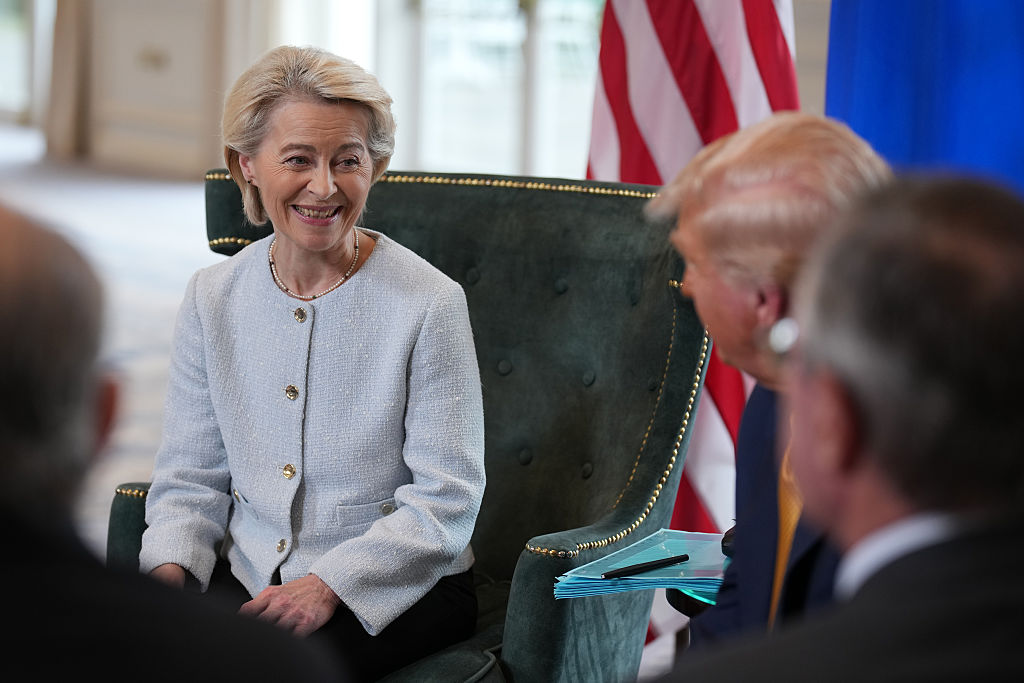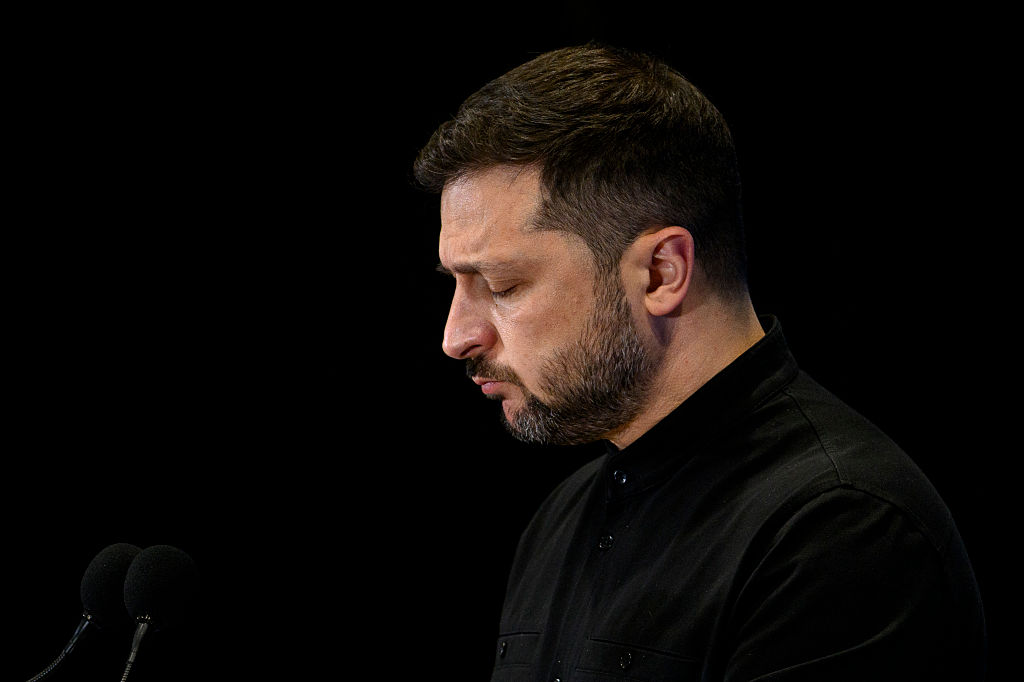President Donald Trump’s planned meeting with Russian President Vladimir Putin has the Ukrainian government on high alert. It’s not just the fact that Trump will be speaking with Putin one-on-one, but that it comes amidst a reported offer from Putin to agree to a ceasefire and freeze the battlefield – provided Ukraine turns over Donbas.
Ukrainian President Volodymyr Zelensky, who is strongly against such a proposal, has flooded European leaders with calls to ensure they oppose such a deal. And he has been successful: Leaders around the continent have released multiple statements. All of these statements began with some verbiage about supporting President Trump’s efforts, but the rest was clearly opposed to the idea that any deal could be struck with Russia. All contained two key demands and almost verbatim language: “No decisions on Ukraine without Ukraine, and no decisions on Europe without Europe,” and “We reaffirm the principle that international borders must not be changed by force.”
Both of these slogans – what else can one call them? – may have made sense at the beginning of the conflict. But now they are downright anachronistic.
Start with the former: “No decisions on Ukraine without Ukraine, and no decisions on Europe without Europe.” Throughout the conflict this notion has been constantly thrown around, including by the administration of former President Joe Biden. But on the face of it, it has never made sense. Plenty can be done without Ukraine’s permission. The United States can, as Vice President JD Vance indicated Sunday, is “not going to fund [the war effort] ourselves anymore.” That is a decision on Ukraine, but America absolutely does not need Europe’s permission to act on that front.
Defenders of the “No decisions on Ukraine without Ukraine” verbiage may want to clarify that they of course mean no decisions affecting Ukraine’s future, such as its constitutionally-demanded entry into NATO and the European Union. This too is fanciful. From not holding elections to ending the conflict, Ukraine’s government loves to use the excuse of “Oh, it’s not in our constitution,” and “Our constitution does not allow for this.” This is silly stuff. Firstly, if Ukraine’s partners pressure the country, they will change their constitution (they can amend it with a simple two-thirds vote in the Rada, a significantly easier process than in many other countries). Secondly, leaders act extra-constitutionally in major crises all the time; there are a few famous wartime leaders, from Andrew Jackson to Abraham Lincoln. And thirdly, it does not really matter to countries like the United States if Ukraine has procedural quibbles. The Trump administration, if peace plans go bust because Ukraine pleads constitutionality, will not say, “Oh well, here’s another $200 billion.”
But this also leads directly into the second commonly-uttered phrase, “We reaffirm the principle that international borders must not be changed by force.” This is particularly important for liberal internationalists, who have long sought to make this idea permanent.
The issue is that it goes against effectively all of human history sans the post-1945 era. Modern Europe’s map was built on the ashes of World War One, a map which was forged – sometimes single-handedly – by American President Woodrow Wilson. In pursuit of his concept of perpetual peace and the end of war, Wilson ripped chunks out of losing countries and gave them to victors, or sometimes forced the creation of brand-new independent states. A further attempt to alter the map by Nazi Germany – by extending itself over its entirety – halted most attempts at territorial acquisition. But even that must come with an asterisk, as the Helsinki Accords, signed as recently as 1975, finalised the recognition of post-World War Two borders, effectively recognizing that yes, borders can be changed by force.
The reason why it mostly stopped after 1945 was because the world immediately entered bipolarity, in which two spheres were closely watched by their overlords, the United States and the USSR. Neither was interested in too much internal upheaval, so they kept things under control. When bipolarity gave way to multipolarity, America acted as world police, engaging in conflicts to protect against forcible border changes, like the First Gulf War.
This combined 80 years of bipolar and unipolar police actions gave way to the illusion that borders could not acceptably be changed by force: But this was never true. It was only true because it was backed up by iron and steel and imperialistic activity.
So why are Ukraine and Europe holding onto this fantasy? The answer was revealed by a statement of Zelensky’s made over last weekend which began with, “The end of the war must be fair.”
This would likely be a phrase all of Ukraine’s liberal internationalist allies would agree with. But it betrays a stunning lack of understanding of the coldness of reality. Wars of conquest are, simply, unfair, especially when it involves the conquest of the weak by the strong. There is nothing fair about them and there never has been anything fair about them.
And there will almost certainly be nothing fair about how the Russo-Ukrainian War finally ends, whenever that comes about. Zelensky’s peace plans – there have been two, one ten-point plan and one five-point plan – both contain demands which are complete non-starters, like Russian officials appearing before international criminal courts or Ukraine being invited into NATO. The Trump administration has made clear it is not interested in the latter, and the former is the sort of demand a winner of a war makes, not a loser.
While it is understandably painful for them to accept, Ukraine is the loser of this war. It has lost around 20 per cent of its landmass and Russia is slowly but surely taking more territory. Ukraine’s cities have been decimated, and its population has decreased via casualties or outward refugee flows. Yes, Russia has lost more men, but its economy has managed to stay afloat and there has not been much social unrest.
To somehow keep Ukraine from losing territory, Europe will have to step up far more than it has been. They will of course claim that they have stepped up plenty, and that the US must “share the burden.” This is false. The United States does not need to perpetuate a war which Ukraine cannot win. It may be deeply unfair. But it is also reality. And slogans, however firmly stated, cannot change that.





Governments give weak gestures on migrants, people reply with rage